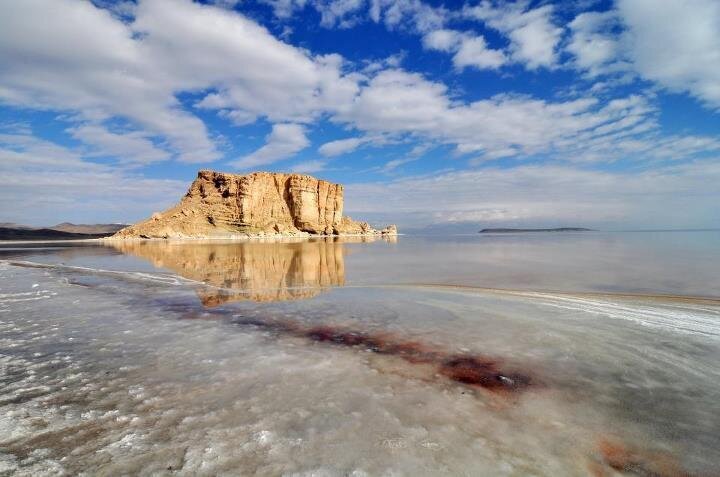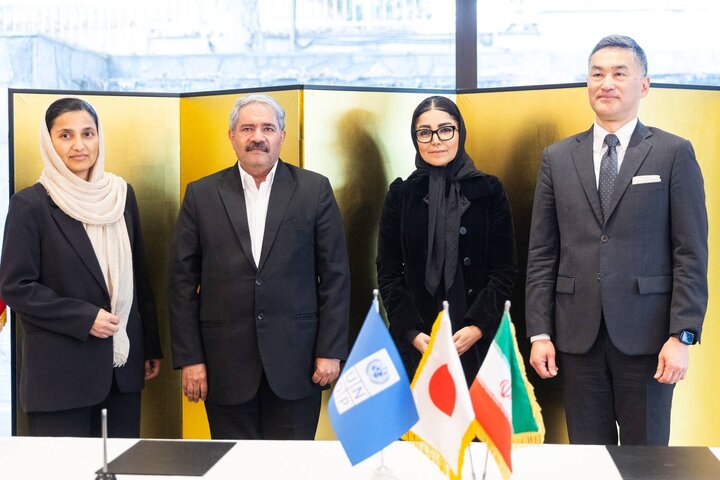FAO participates in project to support Lake Urmia restoration

TEHRAN – Through a joint project led by the United Nations Development Programme (UNDP) and funded by the Government of Japan, the Food and Agriculture Organization of the United Nations (FAO) will join to promote sustainable agricultural practices and solutions for the conservation of Lake Urmia.
On 1 December 2024, the Government of Japan and UNDP signed an exchange of notes to launch “The Project for Developing Conservation Systems of Wetlands in Lake Urmia and Other Wetlands, Including Their Surrounding Communities.” The project, which runs from 2024 to 2028, will be implemented in partnership with the Department of Environment and FAO.
Focusing on sustainable agriculture and climate-adapted livelihoods, the initiative seeks to deliver long-term benefits for local communities while preserving the biodiversity of wetlands as critical ecosystems.
Lake Urmia faces significant challenges due to the overconsumption of water resources magnified by climate change impacts, which has severely impacted its ecosystem. Agricultural activities in the region are increasingly vulnerable to water shortages, a situation exacerbated by the effects of climate change. Studies indicate that these climatic changes could further disrupt agrifood systems and the lake’s fragile environment in the future.
Since 2016, FAO, supported by the Government of Japan, has been working to address these challenges through the Integrated Programme for Sustainable Water Resources Management in the Lake Urmia Basin.

This earlier initiative generated lasting knowledge on water-saving measures and sustainable agricultural practices, laying the groundwork for the newly launched project.
Under the current partnership funded by the Government of Japan, FAO will join UNDP contributing to restore Lake Urmia, reduce climate vulnerability, and enhance the resilience of farming communities dependent on the basin’s water resources. By improving irrigation water efficiency and targeting agriculture—the basin’s largest water consumer—the project seeks to balance sustainable food production with the conservation of this vital ecosystem.
FAO will deploy its GAIN (Governance, Autonomy, Integration, and Needs-based) methodology, a participatory approach that prioritizes community engagement. This methodology underscores the essential role of local farmers in managing water resources and advancing agricultural productivity.
The project will begin by mobilizing diverse stakeholders, including farmers, women’s groups, agricultural extension workers, and respective decision makers. Through focus group discussions and participatory workshops, these stakeholders will collaboratively identify key agricultural and water management challenges. The insights gathered, especially from women farmers, will inform the development of tailored solutions and sustainable action plans for farmland management.
By fostering inclusivity and collaboration, FAO and its partners to establish a model for sustainable agriculture management contributing to wetland conservation and water resource management. The project aspires to ensure the long-term viability of Lake Urmia and strengthen the livelihoods of the communities that depend on it.
Leave a Comment